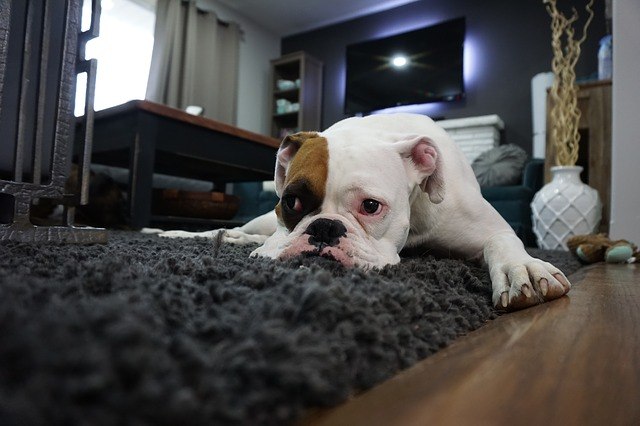With the temperature dropping and nights getting longer, we’ve come up with some suggestions as to how you can make your home snug and energy efficient this winter – and all year round.
AA’s Energy Saving Tips
1. UnBER-able
Let’s start with the BER-sics. BER stands for Building Energy Rating and calculates a building’s energy efficiency. You can arrange for a BER inspector to come to your home and produce a report on its energy performance, rating your home on a scale of A (top of the class) to G (could do better).
Based on this report, you can then plan on how to raise the rating. By improving your home’s energy performance, you will reduce your bills and make it a more pleasant environment to live in. There are lots of articles and videos online which are great resources, but don’t get sucked down the rabbit hole. You can’t possibly absorb everything on the internet, so once you’ve armed yourself with some knowledge it’s probably best to ask an energy expert, architect or builder for deeper advice.
2. The Appliance of Science
All appliances now come with an energy efficiency rating from A to G, just like the BER certs. An A-rated appliance is designed to use the minimum amount of energy to complete a task. By using less energy, you therefore save money on your electricity bills!
3. Every Little Helps…
You don’t have to gut your home completely to make it more efficient. For example, the next time a bulb goes, replace it with an LED one. It will last longer than a regular, incandescent bulb and use less energy.
4. Chimney Best
Insulate your chimney flue and stop fireplace draughts and heat escaping when the fire is not lit with a plastic chimney balloon. Chimney sheep are another product made from wool that can be fitted easily. Both products are widely available online and in hardware stores. Ventilation is extremely important if you have a fire lit, however, so make sure you have a vent installed in the room with plenty of fresh air circulating. A room needs to breathe, so don’t seal it up completely.
5. Don’t Lag Behind
Another relatively inexpensive way to increase your home’s efficiency is to fit lagging jackets to your water tanks and hot water cylinders. Make sure you also pop a lid onto your tank so debris can’t get in. Putting a jacket on your hot water cylinder will keep the water warmer for longer and minimise heat loss. Seal any joins in the jacket with aluminium tape and make sure you also attach insulating split covers for your pipes.
It’s important that you get the right size for the pipes you have, i.e. the smallest ½ inch cover for your ½ inch pipe, ¾ inch lagging for you ¾ inch pipe. Seal the end points and any cuts along the pipe with foil tape. Doing this will prevent condensation forming, stop them freezing and bursting and retain heat – which will save on your energy costs.
6. Don’t Be Draught
As we said above, homes need ventilation. Ventilation and insulation are like yin and yang; it’s all about balance. Sealing up your home completely can be extremely dangerous, especially if you have an open fire, and you’ll want to avoid it in rooms where a lot of moisture is produced, such as the kitchen, bathrooms and utility rooms.
Draughts can be annoying, but there are ways to combat them. For doors, use a brush or hinged-flap draught excluder to cover the gap at the bottom and around your letterbox. Even using a keyhole that has a metal disc cover will prevent wind whistling in. On your windows you can use draught-proofing strips around the frame (depending on the type of windows you have).
In a bathroom, utility or kitchen, extractor fans will take out damp air quickly. Wall vents will allow fresh air into rooms and trickle vents in windows and outside doors will let fresh air gently trickle in. These can be retrofitted and are a discreet and effective way to keep air moving.
7. Totally Rad!
Thermostatic radiator valves don’t control your boiler; they reduce the flow of water through the radiator when the temperature goes above a certain setting. Set them to the level you want for the room; a lower setting uses less energy and so will save you money. With some systems, you can also introduce zoned heating controls. Basically, this means not having your empty spare bedroom rads on when everyone in the house is spending time in the living room. This will reduce your energy usage.
8. Insulate to Accumulate
You gotta insulate to accumulate… extra cosiness! If you want to go big and commit to making your home a warmer and energy efficient place, there are lots of grants available. SEAI have a full list of what you can get assistance with on their website.There are not many places in the home that can’t be insulated; your attic, inside your cavity wall, external walls and internal walls can all be upgraded via dry-lining or insulation boards. Once again, keep in mind that additional ventilation will also be required.
9. Make Hay – or Hot Water – While the Sun Shines
Grants are also available for adding solar panels to your building. There are two different types of panels available; those that can heat water and others that generate electricity. Make sure any work is carried out by a registered electrical contractor.
10. Get Rid of Window Pain
If your budget can stretch to it, replacing single glazed windows with double glazing will go some way towards retaining the heat in your home. Windows can see between 25-35% of the heat in your home escaping and flying off into the sunset. A glazer will assess whether your existing windows can be improved or if they should be replaced.
11. Silver Service
It’s worth investing in a boiler service each year – you don’t want it to go kaput in the middle of winter so it really is essential. A boiler that isn’t maintained has a significantly increased risk of carbon monoxide poisoning. A qualified engineer will check for and fix any leaks or weak points during a service. Furthermore, they will make sure it’s running efficiently which means you will use less energy and so save money on your bills. By getting a yearly service, your engineer can spot any small issues or repairs before they become bigger, requiring more costly repairs.
With your home warm, improved, insulated and safe, there’s nothing left for you to do but sit back in your swimsuit and get cosy!
Are you in the market for home insurance? Our summer sale is now on, grab a great deal with AA Home Insurance online quote.










